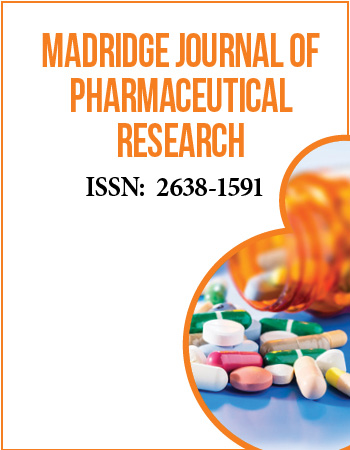International Conference on Medicinal and Pharmaceutical Chemistry
December 5-7, 2016 | Dubai, UAE
A Study of highly standardized aqueous extract of Terminalia chebula 250mg, 500mg versus Placebo in modifying cardiovascular risk with special reference to Endothelial dysfunction in patients with Type2 Diabetes Mellitus
Nizamʼs Institute of Medical Sciences (NIMS), India
Background: Diabetes is associated with an increase risk of atherosclerosis including platelet hyper-reactivity increased inflammation, and endothelial dysfunction. Terminalia chebula (TC) is reported to possess antidiabetic, anti-oxidant, antiinflammatory activity amongst others. The present study was thus undertaken to evaluate the effect of TC 250mg, TC 500mg versus Placebo on endothelial function in patients with type 2 diabetes.
Methodology: After IEC approval and informed consent, eligible subjects were randomised to either–(1) one capsule of TC 250mg, (2) one capsule TC 500mg or (3)one capsule of Placebo, each given twice daily for 12 weeks. Subjects were reviewed at 4 weeks, 8 and 12 weeks of therapy. At each visit they were evaluated for efficacy and safety. Pharmacodynamic evaluation for endothelial function (change in RI) done at every visit. Blood samples were collected for evaluation of biomarkers (Nitric oxide MDA, Glutathione, hsCRP) Lipids and safety lab tests before and at end of treatment. ANOVA and t Test were used for statistical analysis by Prism Graphpad.
Results: Of 74 screened, total 60 eligible subjects completed the study, twenty in each group. Significant reduction in RI was noted with TC 250mg (−2.38±0.82% to −4.93±1.87% ; p<0.001) and TC 500mg (−2.35%±0.85% to −6.14%±1.01%;p<0.001) suggesting improvement in endothelial function compared to baseline and placebo (-2.11+1.61 to -1.01+2.05%). Significant improvement noted in biomarkers of oxidative stress and systemic inflammation with TC 250 and 500mg compared to baseline and placebo. All treatments were well tolerated.
Conclusion: Both TC250 and 500mg significantly improved endothelial function and reduced biomarkers of oxidative stress without any significant changes in safety labparameters. Terminalia chebula 500mg twice daily produced more pronounced response on pharmacodynamic parameters of endothelial function and biomarkers of oxidative stress as evidenced by significant reduction in mean RI index and improvement in nitric oxide, Glutathione and hsCRP compared to TC 250mg and placebo.
Biography:
DNB (Clinical Pharmacology); MD (Pharmacol); FCCP; FIPS; PG Diploma Bioethics Usharani Pingali certified by NABH Accreditation board for accreditation of Clinical trials site, Ethics Committees and Investigators. She has more than 20 years of experience in clinical research. Guide to MD, DM and PhD students. She received a number of scientific awards including LK Oration in Sept 2012, she got UK Seth Gold medal for best research paper in clinical pharmacology; PP Suryakumari Medal for best research publication in diabetes, Ford Foundation Travel Fellowship, Minifellowship On Lipid Disorders training at Glastone Institute of Cardiovascular Sciences and Ati Vishisht Chikitsa Gold Medal from Association of College of Chest Physicians, New Delhi. Her fields of interests are Exploratory Phase I studies of new molecules, Developed non-invasive methods to evaluate the pharmacodynamic effects of drugs in early drug development phase, Scientific evaluation of drugs from herbal origin, Pharmacodynamic evaluation of drugs on endothelial function, Evaluation of drugs in diabetes, dyslipidemia and hypertension, Quality Assurance and Audit of clinical research projects.
Specialized Area of Work: Worked in field of clinical pharmacodynamics for over 20 years with specific interest in evaluation of pharmacodynamic effect of drugs using non-invasive methods especially in relation to endothelial dysfunction. Developed and validated some techniques to study drug effects and mechanism of action of drugs especially on Endothelial function and cardiovascular effects, psychomotor performance, gastro-intestinal motility, pain, saccadic eye movement and other CNS effects etc. Worked extensively on herbal formulations also as there are very few systematically conducted studies on the pharmacodynamic effects. Instrumental in establishing ICMR Advanced Centre for Clinical Pharmacodynamics.


